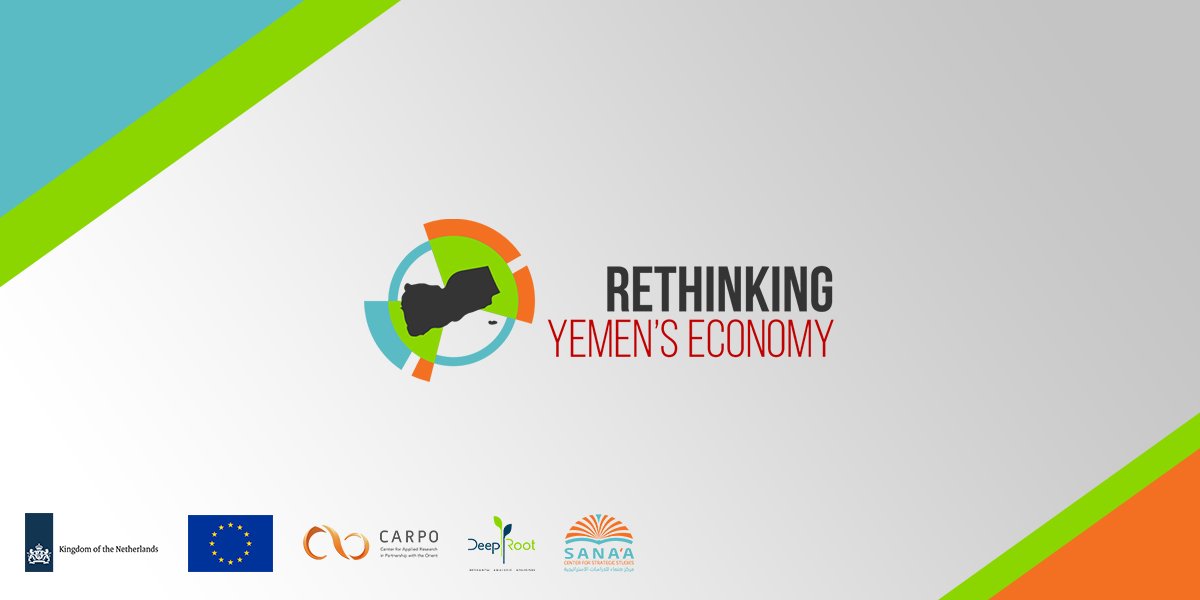Policy Briefs
Challenges to Yemen’s Public Revenues

Since April 2022, the war in Yemen has mutated from a high-casualty conflict to a protracted stalemate with relatively stable frontlines. The contest is now over the economy, as the Houthi group (Ansar Allah) leverages negotiations and its military power to put fiscal pressure on the internationally recognized government. The current phase has been marked by the expansion of economic warfare, with the Houthi authorities shutting down trade from government-controlled areas, stoking discontent as public utilities break down and the currency tumbles.
- The Houthi attack on government revenue streams began last fall with a blockade of oil exports and has expanded into competition for customs revenues and a ban on cooking gas produced in government-held areas.
- The precipitous decline in oil, gas, and tax revenue has resulted in massive budget deficits and reduced the government’s capacity to cover essential expenditures, including the payment of public sector salaries and the provision of electricity.
- The expiration of a Saudi fuel grant has precipitated an electricity crisis in the south, with the government and private operators unable to run power plants. By September, residents in the interim capital of Aden received as few as four hours of power each day.
- The August 2023 announcement of a new US$1.2 billion grant from Saudi Arabia will provide a measure of relief, but the vast public sector cannot subsist on irregular handouts, and private investment is limited by conflict and political fragmentation.
- Without substantial and sustained financial assistance, the economic and humanitarian situation in Yemen will rapidly deteriorate.
- Hundreds of thousands of employees working in the government-controlled public sector and their dependents will lose their primary source of income if salaries go unpaid, and their purchasing power will fall with the devaluing rial as the central bank’s foreign currency reserves dry up.
This paper details the circumstances of the destruction of the public revenue streams of the internationally recognized government and identifies potential avenues for their restoration. It was informed by the research of the Sana’a Center Economic Unit and consultations and discussions at the 9th Development Champions Forum (DCF), held from May 24-26 in Amman, Jordan, as part of the Rethinking Yemen’s Economy Initiative. [1] Participants discussed and debated potential avenues for relief of the government’s fiscal crisis and suggested streams of exploitable revenue for further study of their viability.
- Raising or improving the collection of income, commercial, or even point-of-sale taxes in Yemen is currently beyond the government’s ability to enforce, due to its limited wartime capacity and geographic fragmentation.
- Calibrating the realities of the current political situation, a number of suggestions were proposed for the exploitation of public assets and utilities that the government may wish to consider.
- Crude oil might be sold on restructured futures contracts, or dealt to private regional exporters, through a transparent process. Customs and tax collection could be streamlined or decentralized.
- Also, the government should explore optimal models for creating effective partnerships with the private sector and encourage it to provide electricity distribution services, as well as studying the possibility of privatizing the electricity sector, even partially, or financing and rationalizing it through a pre-payment system to address the woeful collection of utility bills.
- Other assets, including the publicly owned telecommunications company, could be reformed, as could expenditures, including the security and public sectors.
- Deeper reforms are dependent on strong and effective state institutions, which have long been absent from Yemen and whose reconstitution likely awaits the conclusion of the war. Additional support for the machinery of state could have a multiplier effect in alleviating the longer-term crisis, but would take time to have an effect.
The measures outlined here will not rapidly reverse the government’s financial fortunes on their own, but could mitigate its current predicament and restore a measure of faith in its ability to govern. Ultimately, Yemen requires two developments: an economic truce to decouple its stalled military competition from the livelihoods and well-being of its civilian population, who are being pushed further into poverty and desperation; and sustained financial support from Saudi Arabia and the United Arab Emirates, that it may engage in the long-term rationalization of revenues and expenditures and underwrite much-needed reforms.
[1] The initiative aims to contribute to peacebuilding, conflict prevention, economic stabilization, and sustainable development by building consensus in crucial policy areas. The program engages and promotes Yemeni voices in public discourses on development, economic issues, and post-conflict reconstruction in Yemen, and is implemented by the Sana’a Center for Strategic Studies, the Center for Applied Research in Partnership with the Orient (CARPO), and DeepRoot Consulting. It is funded by the European Union and the Embassy of the Kingdom of the Netherlands to Yemen. Figures have been sourced by the Sana’a Center Economic Unit from the government’s own statistics, except where otherwise indicated.